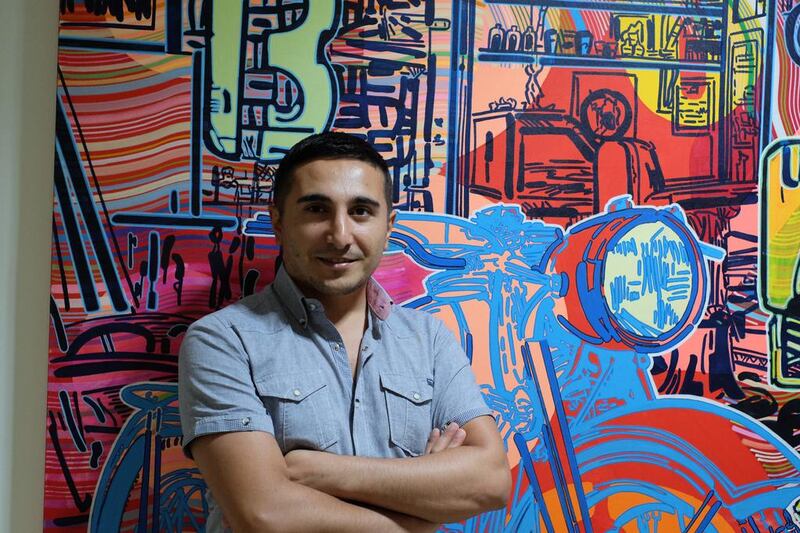ISTANBUL // Cagdas Ulus and his new wife were on their way to the Balkans for their honeymoon when they were detained at the Istanbul Sabiha Gokcen airport.
The newly married couple were thrown into separate holding cells for several hours before being released during last month’s ordeal. Their passports were confiscated, they missed their flights and lost all the money they had spent on hotel reservations.
According to airport officials, the reason for their arrest was "suspicion of membership in the Fethullahist terror organisation (Feto)" – the term the government uses for followers of exiled cleric Fethullah Gulen, a former ally of president Recep Tayyip Erdogan who is now blamed for the failed coupi n Turkey on July 15.
While most people in Turkey believe that Gulenists were behind the attempted coup, the purges against alleged Gulenist infiltrators in the military, the police and civil service have reached epic proportions. And in the case of Cagdas and others, absurdity too.
In 2011 and 2012, Cagdas, a 30-year-old journalist spent nine months in jail because of Gulen. He was suspected of being a member of the Kurdistan Communities Union (KCK) – an umbrella group for other Kurdish organisation, including the banned Kurdistan Workers party (PKK). The basis for Cagdas’ arrest was a phone conversation he had with a Kurdish journalist while working on a story.
Followers of Mr Gulen were widely believed to have orchestrated the prosecutions which led to Cagdas being jailed. So he was astonished to learn that he and his wife Mehtap, who had also fought against Gulenist-driven trials, were accused of supporting the exiled preacher.
“We were shocked,” said Cagdas.
Fethullah Gulen is public enemy number one in Turkey and tens of thousands of people have been detained or arrested in the aftermath of the coup. But they include those like Cagdas who could not possibly be Gulen sympathisers.
Mehtap, a lawyer, was on the defence team for Tuncay Ozkan, an opposition politician and journalist who was jailed during the heyday of the Ergenekon case, another highly controversial series of trials launched by Gulenists that targeted an alleged deep state consortium accused of conspiring to oust the government. Mr Gulen and the Turkish president Recep Tayyip Erdogan were still allies at the time.
In the weeks following the coup, an atheist, Marxist university professor and a secular opposition journalist — who were both sharply critical of the cleric and his sympathisers — also found themselves detained on suspicion of being Gulenists.
“There is a systematic nature to the purges, indicating that the targeting of secular citizens is intentional, part of a broader strategy to crack down on and silence all opposition,” said Aykan Erdemir, a former Turkish parliamentarian, who is now a senior fellow at the Foundation of Defense for Democracies (FDD) based in Washington.
“Now that the Justice and Development Party (AKP) has extended state of emergency for another three months, I expect the purges to continue victimising a wider range of people and institutions,” Mr Erdemir said.
Cagdas is still not entirely sure what he is up against.
After going to various branches of Istanbul’s main police department trying to find out information relating to their case and coming up empty-handed, the couple went to the Istanbul Caglayan courthouse and discovered that an order was submitted on September 1, under Turkey’s state of emergency declaration, preventing journalists being tried in the ongoing KCK trial from leaving the country.
“If there is an investigation against me for being a member of Feto, as a journalist that was victimised by them, that is a scandal. If I was prevented from leaving the country due to the KCK trials, that is another scandal,” he said.
Earlier this month, journalist Ramazan Alkan was arrested for allegedly having downloaded the ByLock app to his phone, a programme that Gulenists are said to have used to communicate. The irony is that Alkan is a reporter for Yeni Akit, an Islamist daily newspaper known for its staunch support of Mr Erdogan and his ruling AKP.
As for Cagdas, who relies on sources in the police department for his stories, he says he no longer knows anyone in the department due to the extensive purges. He is currently writing a book on how wealthy people in Turkey who commit violent crimes often get away or are given lenient sentences.
As a journalist fortunate enough to still be employed, Cagdas watched with unease as the leftist opposition IMC TV station was raided by police and shut down earlier last week.
“On the night of the coup attempt, the putschist soldiers cut TV broadcasts. Now, the police are shutting down other channels, just because they are among the opposition,” he said.
“At one time, it was the Gulenist police officers, judges and prosecutors dealing out this lawlessness,” Cagdas said. “Now, all that has changed is who is playing what role.”
foreign.desk@thenational.ae





